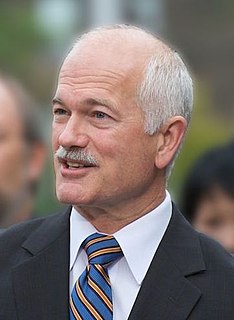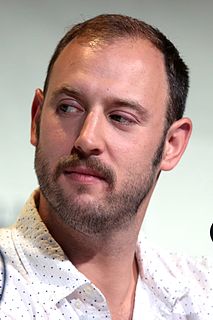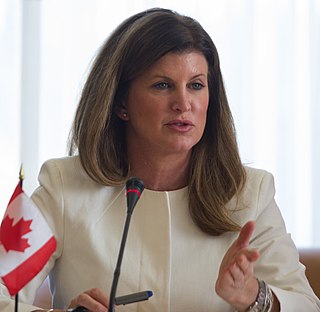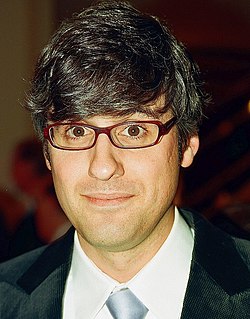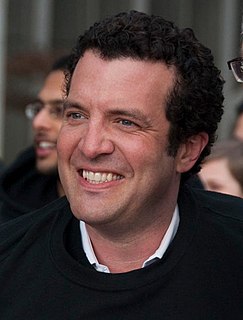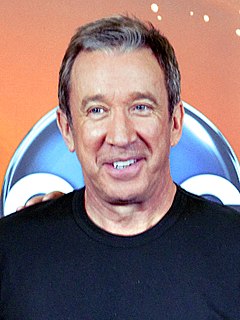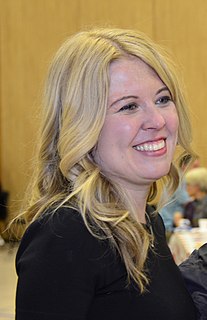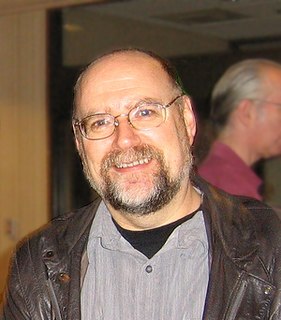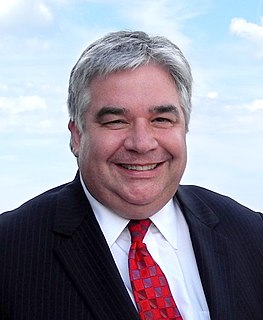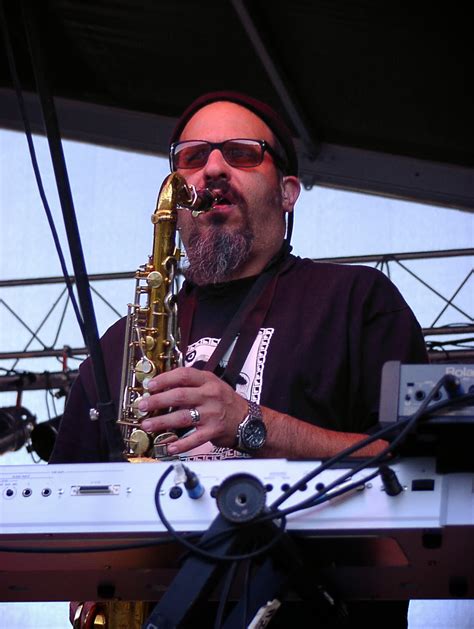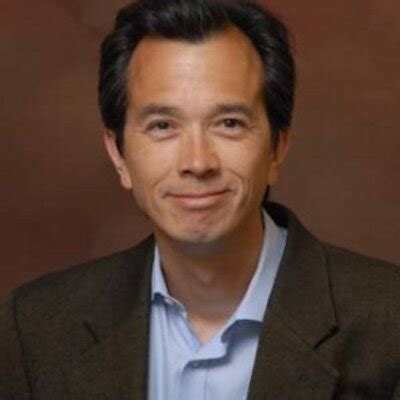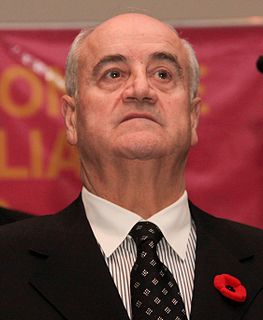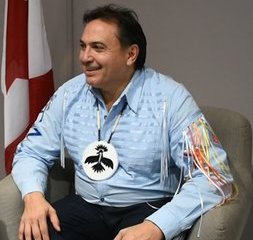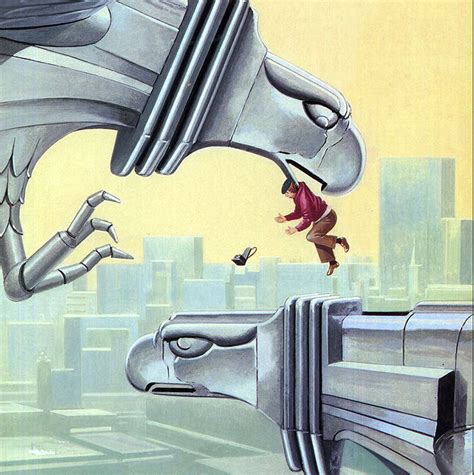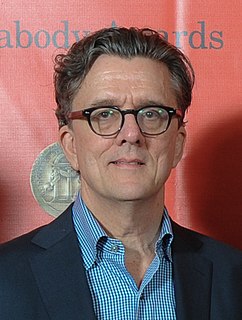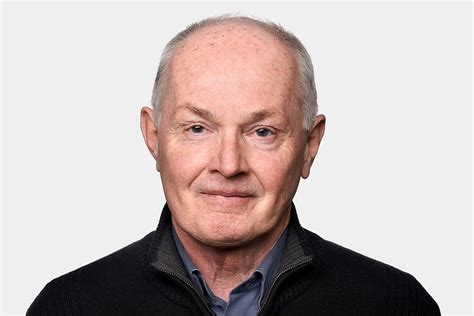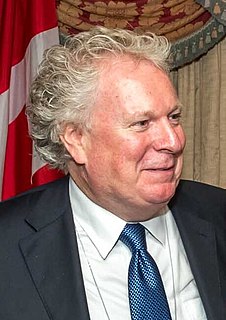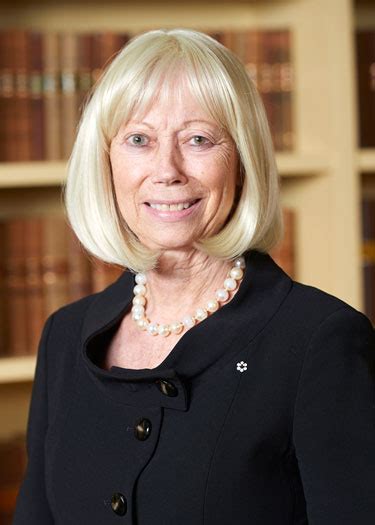Top 418 Canadians Quotes & Sayings - Page 7
Explore popular Canadians quotes.
Last updated on December 25, 2024.
And finally, to all Canadians: Canada is a great country, one of the hopes of the world. We can be a better one – a country of greater equality, justice, and opportunity. We can build a prosperous economy and a society that shares its benefits more fairly. We can look after our seniors. We can offer better futures for our children. We can do our part to save the world's environment. We can restore our good name in the world.
Currently, without scientific evidence demonstrating safety or effectiveness, we continue to urge Canadians against the use of these e-cigarettes. We have heard that e-cigarettes may be a gateway for teens to begin smoking, while also having the potential to serve as a smoking cessation tool. Today, I am asking the Standing Committee on Health to undertake a thorough study on e-cigarettes and provide a report.
Irony is the disparity between what you expect will happen, and what does happen. So raining on your wedding day isn't ironic, it's just crappy. It would have been ironic if she had lived in a place like Seattle, and traveled to the desert of Mexico for a wedding and it ended up raining there, but not in Seattle. Alanis always gets the last laugh though. We all sit here, saying her song isn't ironic, but in fact, that's pretty ironic that she wrote a song called Ironic that wasn't really ironic. Those Canadians are pretty crafty.
I got elected on a commitment to Canadians that I was going to make growth work for everyone. I was going to focus on the middle class and those working hard to join it. I was going to make sure that the people who felt that the growth in the economy had left them behind would be included. That's similar to the promise that got Trump elected. Now, our approaches to the same problems are somewhat different. But in my conversations with him, we've very much been able to agree that we want to help the citizens of our countries in tangible ways.
In Canada, when we speak of water, we're speaking of ourselves. Canadians are known to be unextravagant, and one explanation of this might be that we know that wasted water means a diminished collective soul; polluted waters mean a sickened soul. Water is the basis of our self-identity, and when we dream of canoes and thunderstorms and streams and even snowballs, we're dreaming about our innermost selves.
Each year, members of Canada’s Ukrainian community, Parliamentarians and others commemorate the Holodomor at gatherings across the country. In doing so, we honour the memory of those who perished and the legacy of those who survived, including many who found refuge in Canada. It is by remembering the tragedies and atrocities of the past that we can equip ourselves to prevent them from happening again. That is why this national tour, which will reach Canadians of all ages and backgrounds, is an important initiative
The American people are not naifs who yearn for isolationism, but they are starting to ask some hard questions about the way we have been doing business for 50 years, and it may well be time to grant the French, Canadians, Germans, Turks, South Koreans, and a host of others their wishes for independence from us: polite friendship - but no alliances, no bases, no money, no trade concessions, and no more begging for the privilege of protecting them.
I think Canadians, by and large, during the American election, every time Donald Trump talked about NAFTA, we felt that he was talking about Mexico. Now, if Donald Trump tears up NAFTA, there is still a Canada-U.S. Free Trade Agreement. And we all assume that we will revert back to that agreement, which is essentially the same as NAFTA except Mexico is no longer at the table. I think, you know, that is what we are hoping for.
I've always felt, and I don't like to say this because I sound like an ex-patriot, I always feel quite a bit more comfortable sometimes in Canada. For a variety of reasons. I just think it's a politer place. Kind of. You don't have quite the population to deal with but you don't immediately get into skirmishes with everybody. If you had any passport, any terrorist would let the Canadians off the plane.
We are well-placed internationally right now and this government has been very clear in stating that our continued concern and vision for this country is to see that long-term economic growth and prosperity, build on the track record of one million net new jobs. These are things Canadians want -- to have steady hands on the tiller and that's what's been done today.
Through our government's updated science, technology and innovation strategy, we are making the record investments necessary to push the boundaries of knowledge, create jobs and opportunities, and improve the quality of life of Canadians. Our government's Canada Research Chairs Program develops, attracts and retains top talent researchers in Canada whose research, in turn, creates long-term social and economic benefits while training the next generation of students and researchers in Canada.
In specific terms I don't think I could make any suggestions, but in general terms I believe that it is because Canadians have been under the good influences of their churches that they are a tolerant people, an understanding and patient people, so that there has been little backlash against the excesses which have happened over the decades in French and in English Canada which might turn either group off.
I'd like to reiterate that the opportunities in space are going to be vastly different than they've been before, so, for young Canadians preparing for their futures, it's important to understand that there are going to be many opportunities to work in either new space industries that are being developed or to actually go to space, to be one of the people to join our team of explorers who are going to leave lower-Earth orbit. That, ultimately, is amazing, the opportunities we'll have.
What are these guys?" He whispered "Canadians," Percy said. Frank leaned away from him. "Excuse me?" "Uh, no offense," Percy said. "That's what Annabeth called them when I fought them before. She said they live in the north, in Canada." "Yeah, well," Frank grumbled, "we're in Canada. I'm Canadian. But I've never seen those things before.
I think we know this much about Donald Trump so far: He believes he's a deal-maker. He likes to bargain. Part of bargaining is that you talk really tough. You ask for the moon, you settle for the topsoil. He says - he beats up on the Mexicans, he beats up on the Canadians, but the point is not to abrogate the treaty and have the two of us basically putting up walls and blocking trucks at the border.
We once discussed which were the cleanest troops in the trenches, taken by nationalities. We agreed on a descending-order like this: English and German Protestants; Northern Irish, Welsh and Canadians; Irish and German Catholics; Scots; Mohammedan Indians; Algerians; Portugese; Belgians; French. We put the Belgians and French there for spite; they could not have been dirtier than the Algerians and the Portugese.
The suicidally disgruntled were legion, And their enemies included any and all Americans, Brits, Canadians, Danes, et cetera; or, conversely, all Moslems, dark-skinned people, non-English-speakers, immigrants; all Catholics, fundamentalists, atheists; all liberals, all conservatives...For such people the consummate act of moral clarity was a lynching or a suicide bombing, a fatwa or a pogrom. And they were ascendant now, rising like dark stars over a terminal landscape.
I think being Canadian helps you as a journalist in America, because you're sort of on the outside watching this big party going on, and you're sort of taking mental notes as it goes on. I think if you're in the party the whole time, you don't notice it as much. And I think Canadians are very good observers of American culture.
As a city powered by our country's knowledge economy, Toronto will continue to benefit from developing, attracting and retaining the world's most promising young researchers at the University of Toronto. Our government will continue to invest in research awards that lead to long-term social and economic benefits for Canadians.
I think I was making a Stephen Fearing record, and I mentioned to someone that the Tragically Hip were talking to me about working with them. The Canadians in the room couldn't believe it, as if the Beatles were getting back together again and asking me to produce them. I have to say, as an American, it's different; they're not exactly a national treasure here.
Tariffs are in the end taxes. And somebody has to pay that tax. I think one thing people are forgetting is that trade disputes are two-sided. When the United States imposes tariffs on a partner like Canada, there is always a possibility that Canada will say that's not fair and retaliate. And at that point, you have to ask the question, - which U.S. industry will suffer because the Canadians retaliated against it?
For dash and gallantry the bloodthirsty Scots, Australians and Canadians led the way, with the impetuous Irish close behind. The Australian to my mind were the most aggressive, and managed to keep their form in spite of their questionable discipline. Out of the line they were undoubtedly difficult to handle, but once in it they loved a fight. They were a curious mixture of toughness and sentimentality.
It is hard to compare cultures without overgeneralizing, but I think a lot of American poetry has an assertiveness - an upbeat quality - that's less typical of Canadian poetry. Of course there are poets in both countries to whom that generalization does not apply. Speaking broadly, I'd describe Canadians as being a bit more reserved than Americans. Not less opinionated - just less direct.
It's to come up with a deal that both sides feel they can live with. And I think that that's probably where we're going to end up. I think that Donald Trump has people working for him who are ultimately deal-makers. And the Canadians are the same way. They're grownups about this. That's why you saw the prime minister of Canada, Justin Trudeau not respond to Trump with the same rhetoric, but to talk about the strength of the relationship and the desire for a deal.
Increasingly, we're seeing two worlds in Canada. The world for most Canadians is increasingly unaffordable, involves more precarious work, and is a harder place in which to get by. The second world is an exclusive club for the wealthy and well-connected who get special access and are exempt from rules the rest of us play by.
Our government's investments in science, technology and innovation are ensuring that ideas move from the lab to the marketplace faster, creating jobs and opportunities for Canadians. Through our investment in Mitacs Elevate, we are providing training and new career opportunities for talented researchers while ensuring that local businesses such as Vision Extrusions stay competitive and continue to create jobs here in Woodbridge.
Now is the time to take stock of a painful part of our history. Only then can we move past it. Anything less would render generations of courageous struggle and soul-searching a truly lost cause. A lot of Canadians don't seem to want to hear it. All I can say to them is: try to listen. Open your heart, your mind. The Indian Act and residential schools did a number on us, breaking down Indigenous people, then families, communities, nations. We can learn so much from each other. There is so much to be hopeful for.
We Canadians need to go beyond what any previous government has done in terms of our diplomatic network, our support for companies to export, trade and invest beyond North America, and our contribution to the safety of the international system, through defence, development, international organizations, and so forth.
The fact is we're always going to be interwoven with the American economy, and that's why it's important to have a good, strong, constructive relationship with whoever the American President is and whatever administration it is, whatever their priorities. We will always work constructively together. But at the same time, Canadians expect us to stand up for our own values, to make our own choices, whether it's around climate or multilateral institutions, and that's exactly what we're going to keep doing.
I really love sharing with young Canadians the changes we're seeing in the space program right now with what we call "commercial space." We have commercial cargo delivery to the space station, and now we have what we call "commercial crew," where we're going to be delivering people to low orbit on new vehicles that are being designed by Boeing and SpaceX.
As prime minister, Canadians expect me to do two things: To stand up for Canadian interests and project Canadian values; and to have a good, constructive relationship with our largest trading partner and closest neighbor, the United States. Those two things are not incompatible. It requires a very deliberate strategy and approach, but I think we've done that.
If the general attitude of Canadians toward their mighty neighbor to the south could be distilled into a single phrase, that phrase would probably be "Oh, shut up." The Americans talked too much, mainly about themselves. Their torrid love affair with their own history and legend exceeded-painfully-the quasi-British Canadian idea of modesty and self-restraint. ... They were forever busting their buttons in spasms of insufferable yahoo pride or all too publicly agonizing over their crises.
I view the relationship with Canada as a vital relationship for the United States. The relationship, of course, is defined government-to-government. It's also defined people-to-people, and there's a lot of people in my country who respect Canada and have great relations with Canadians, and we intend to keep it that way.
Our Government is proud to support the Provincial Metis Housing Corporation and its local partners, like Yorkton Parkland Housing, and all of the important work they do in our province to help those in need. With a roof over their heads, all Canadians can prosper as we work together towards eliminating homelessness.
I'm comparing Americans to international peers in terms of GDP, educational system - the sort of benchmarks we used to designate a so-called developed society. In that sense, we are outliers. Are we suckers? Yes, but it's not just that. That puts too fine a point on what I am saying. We're not idiots and victims. It's about us as a people, compared with, say, Canadians, believing whatever we believe because, well, we're Americans, we feel this way without regard for what scholars and scientists say.
Representing Canada as a hockey player is always a tremendous honor, which also comes with a lot of responsibility. Being able to compete and win a gold medal on our home soil made it a once in a lifetime experience. Capping off the best ever performance by not only the Canadian athletes, but also Vancouver and all Canadians, made for an amazing Olympic experience.
Both my parents are English and came out to Australia in 1967. I was born the following year. My parents, and immigrants like them, were known as '£10 poms.' Back then, the Australian government was trying to get educated British people and Canadians - to be honest, educated white people - to come and live in Australia.
The Canadian Identity, it seems, is truly elusive only at home. Beyond the borders Canadians know exactly who they are, within they see themselves as part of a family, a street, a neighbourhood, a community, a province , a region, and on special occasions like Canada Day and Grey Cup weekend and, of course, during the Winter Olympics, a country called Canada. Beyond the borders, they pine; within the borders, they more often whine
I think we have a little added appreciation for the Canadian fans, maybe because there's a lot of Canadians that want a Canadian band that seems to tour a lot more in the U.S. that are like, "Whatever. You guys don't care about us. You just turned your back." Our fans, the people that we hang with in Canada when we play, seem to be super-supportive still. We have a lot of love for that.
Politicians detest self-sufficient citizens. Politicians need to be needed. When we get socialized medicine, you will be completely dependent upon politicians for your medical care, as Canadians are today. That's why if you need an MRI in Canada, you have to wait three months - unless you pay certain kinds of homage to the right politicians.
I think it's a good thing that we can have relatively non-partisan political conversations because I don't think that my premier necessarily should agree with everything the federal NDP says. I don't think she should disagree with everything the federal Conservatives say. I think that Albertans and Canadians as a whole, as I always say, are looking for pragmatic politicians with pragmatic solutions to their problems, and they want the best ideas to move forward, regardless of who has that idea.
For the past three years, the CIVIX Student Budget Consultation has helped us to better understand the most pressing national issues for young Canadians. I am delighted to note that on key issues, such as balancing the budget, debt reduction, and lowering taxes, we stand in step with the thousands of students who participated in this initiative from coast to coast to coast. I want to thank the students and teachers for investing their time and energy in this worthwhile initiative. Their enthusiastic participation inspires great hope for Canada's future.
You can't let the debate of the day mask the fact that Canadians care deeply in their country. Including Quebecers - from all origins and language. Quebecers care deeply about their country. The idea of Canada and its unity is not something that is set in stone forever, or that is solved. We need to always work towards building this country.
The big frustration for me is that people are growing so cynical about politics that you see them basically shrug and say, "Oh, yeah. Who cares that Harper is shutting down debate? Who cares that he's building prisons, and everything? All the politicians are the same so why should we be outraged about one rather than the other?" And my point is Canadians need to wake up. This is not the Canada they'd recognize if they looked closely.
I learned that Canadians are furious because Canada is exporting water to the United States. Their lakes are shrinking because they're selling water to the U.S. We water our golf courses and every ice cream shop and every coffee shop in the country because the health inspector has said you have to have a steady stream of water cleaning your spoons that you're frothing milk with and their ice cream scoopers. Are you kidding me? We're wasting all this water while we're sucking it from Canada and they're watching their lakes shrink?
The Nova Scotian black community always remembered Viola Desmond - they didn't lose track of her, ever. Her memory was very much alive there, but the rest of us didn't know anything about her. It's just so typical of Canadians that we know Rosa Parks, in that "bad country to the south of us" - they needed this lovely, courageous woman to sit down in the front of the bus - but we wouldn't know ours, because of course we "don't have racism in Canada."
I say a few good things about Canada in the book, you know. Americans are weird, though. We refuse to look at other countries. Start with Canadians - I want to think you aren't that different, so why can't we do our incarceration policies more like Canada? If we still had a 1970 level of incarceration which was the same as Canada's then and now, I never would have written this.
I have nothing against Canada. I think that Canadians might know the secret to all existence, but to us it just comes off as timid and kind and too nice, and it strikes us as lacking edge. Unless you are hijacking someone and going on a reality show with your eight kids and wearing a velour pink pantsuit, then you have no edge to us.
When I was arrested opposing the war in Vietnam in 1965, as I said about 20 or 30% of people were opposed to the war. By 1968, more than half of Americans were opposed to the war. If you pull in Europeans, Canadians, people from around the Third World, the war was vastly unpopular. But even half of Americans by 1968 opposed the war.
Our government is committed to investing in world-class research networks such as GlycoNet, which will develop new drugs and vaccines to fight diseases that affect millions of Canadians. These investments will improve our quality of life and contribute to the creation of a stronger, more innovative economy and a more prosperous Canada.
I would always argue to my students that Canada is not necessarily or inherently a left-wing country, and the United States is not necessarily the citadel of right-wing liberty. The obvious case there is Franklin Roosevelt's New Deal, which made the Americans much further left than the Canadians at the time, and Americans coming to Canada found us backward, conservative, and out of tune with the kind of free-spirited liberalism that there was in the States. Then things reversed, with medicare the prime example.
